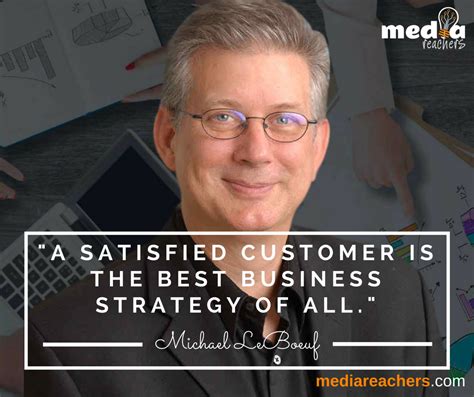A Quote by Albert Ellis
If human emotions largely result from thinking, then one may appreciably control one's feelings by controlling one's thoughts - or by changing the internalized sentences, or self-talk, with which one largely created the feeling in the first place.
Related Quotes
All of us live at the feeling level, and our feelings are in large part a result of the way we perceive things. You observe or are told something, you interpret it, and only then do you have a reaction at the feeling level. The point is that feeling is preceded by perception, and all of us are capable of controlling our interpretation [the associations and assumptions] of what we see. If we can control our interpretation, then it logically follows that we can exercise some control over our feelings as well.
One of the capabilities, which seems to be the most difficult for aspiring leaders to maste is realistic optimism. It requires one to recognize that our experience of life is largely up to us, that our situations, good or bad, are largely due to our ability on a moment-to-moment basis to capitalize on opportunity. Those that approach life as if it is largely outside of their own control, or that others are largely to blame for their circumstances, generally find growth elusive.
When you are thinking something, you have the feeling that the thoughts do nothing except inform you the way things are and then you choose to do something and you do it. That's what people generally assume. But actually, the way you think determines the way you're going to do things. Then you don't notice a result comes back, or you don't see it as a result of what you've done, or even less do you see it as a result of how you were thinking. Is that clear?
The character of a child is formed largely during the first twelve years of his life. He spends 16 times as many waking hours in the home as in the school, and 126 times as many hours in the home as in the church. Each child is, to a great degree, what he is because of the ever-constant influence of home environment and the careful or neglectful training of parents. Home is the best place for the child to learn self-control, to learn that he must submerge himself for the good of another. It is the best place in which to develop obedience, which nature and society will later demand.
Self-acceptance begins in infancy, with the influence of your parents and siblings and other important people. Your own level of self-acceptance is determined largely by how well you feel you are accepted by the important people in your life. Your attitude toward yourself is determined largely by the attitudes that you think other people have toward you. When you believe that other people think highly of you, your level of self-acceptance and self-esteem goes straight up. The best way to build a healthy personality involves understanding yourself and your feelings.
Self-absorption is always a temptation to young people, and if their religion is of a sort to add to this self-absorption, I feel that it is a serious mistake. If I had my way, the whole subject of feelings and emotions in the religious life would be absolutely ignored. Feelings there will be, doubtless, but they must not be in the least depended on, nor in any sense taken as the test or gauge of one's religion. They ought to be left out of the calculation entirely. You may feel good or you may feel bad, but neither the good feeling nor the bad feeling affects the real thing.
Our culture has few taboos that can't be violated, and our establishment has largely given up on setting standards in the first place. Except where Islam is concerned. There, the standards are established under threat of violence, and accepted out of a mix of self-preservation and self-loathing. This is what decadence looks like: a frantic coarseness that "bravely" trashes its own values and traditions, and then knuckles under swiftly to totalitarianism and brute force.




































